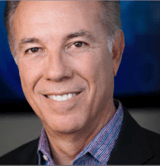Summary
In this session, Sam, Frederick, and Russ explore the complexities of enterprise design and product development. They stress beginning with personal hypotheses and proving them right or wrong, as Sam advocates starting with oneself. Society-wide culture change, rather than just design work, is central to successful enterprise transformation, noted especially by Sam and reinforced by others referencing the role of art, comedy, and social networks. Frederick highlights the challenge of delivering complex system improvements under tight time constraints, advising honesty and aligning project scope accordingly. The panel discusses the tension between radical and incremental innovation, with Sam emphasizing that most changes occur through networked connections rather than disruptive reinventions, though radical innovation requires culturally ready organizations, as noted with Honeywell's example. Russ explains how large audiences, like federal agencies, can adopt shared style guides while retaining customization for their unique needs. The importance of managing legacy systems alongside future-focused teams is highlighted, with the Atari example illustrating structural separation benefits. The panelists warn about technical and organizational debt as long-term obstacles. Sam underscores that culture trumps strategy and suggests embedding user experience improvements into an organization's social fabric, using regular communication channels to build momentum. Overall, the talk stresses that enterprise UX requires patience, cultural sensitivity, incremental progress, and a networked approach to change.
Key Insights
-
•
Start enterprise design projects with yourself to form testable hypotheses before engaging others.
-
•
Enterprise UX work is often more about culture change than just design or technology.
-
•
Transparency about time constraints and realistic scope is crucial when organizations demand rapid delivery.
-
•
Radical innovation in enterprise requires a culturally ready organization; otherwise, incremental improvements are more feasible.
-
•
Complex legacy systems require maintaining separate teams focused on current operations and future innovation to avoid stagnation.
-
•
Technical and organizational debt are major causes of prolonged pain during system migrations or upgrades.
-
•
Shared design standards can coexist with agency-level customization to balance familiarity and unique needs, as Russ explains with 18F.
-
•
Users can derive a sense of status or accomplishment from mastering complex legacy systems, making change socially challenging.
-
•
Embedding UX progress into an organization involves building strategic support and grassroots momentum through social networks and storytelling.
-
•
Measuring software like employee performance—reviewing and retiring underperforming systems—is essential to avoid wasted resources.
Notable Quotes
"Start with yourself. It’s a great place to get a hypothesis, and then prove yourself wrong or right."
"What we underestimate is that enterprise work is essentially culture change, not just design work."
"Do what you can, where you are, with what you have — that’s how you show you can deliver."
"Only work with companies willing to invest the time required; otherwise, deliver what you can and be honest about it."
"Radical innovation isn’t the main form of change; the main form is connections, like open APIs with massive downstream effects."
"If you create a separate team to work on the future, make sure they stay focused on the future, or you’ll never get out of the trap."
"The moment you spend more on maintaining legacy than creating the future, you’re probably doing the wrong thing."
"Users sometimes enjoy the complexity of old systems because mastery grants them elite social status internally."
"Culture trumps strategy. When culture derails your best plans, you need both strategic air cover and grassroots momentum."
"Building a distribution list of user-centered design success stories created a groundswell with 1,200 subscribers hungry for more."
Or choose a question:
















More Videos

"Timely interactions that log users out without saving progress cause abandonment, especially for people with disabilities."
Sam ProulxOnline Shopping: Designing an Accessible Experience
June 7, 2023

"We want to build consultants who can solve problems across a variety of projects and clients."
Ignacio MartinezFair and Effective Designer Evaluation
September 25, 2024

"We needed to revise our plan; we couldn’t just keep adding talented folks and hope everything falls into place."
Sarah Kinkade Mariana Ortiz-ReyesDesign Management Models in the Face of Transformation
June 8, 2022

"The Shaker village sidewalks followed people’s natural inclinations, not forcing unnatural movement."
Daniel GloydWarming the User Experience: Lessons from America's first and most radical human-centered designers
May 9, 2024

"The careful application of structured queries can reveal deeper insights than traditional research alone."
Patrick BoehlerFishing for Real Needs: Reimagining Journalism Needs with AI
June 10, 2025

"Our AI tools help with speed and efficiency, and also help save money by reducing redundant research."
Andy Barraclough Betsy NelsonFrom Costly Complexity to Efficient Insights: Why UX Teams Are Switching To Voxpopme
September 23, 2024

"How do we as designers connect more deeply with the policy world? That’s still a developing thing."
Alexandra SchmidtWhy Ethics Can't Save Tech
November 18, 2022

"A lot of DevOps is about empathy — doing our piece but thinking about the larger connection."
Louis RosenfeldDiscussion: What Operations can teach DesignOps
November 6, 2017

"Design systems are the language of implementation; they allow us to communicate ideas in a common format and process."
Mitchell BernsteinOrganizing Chaos: How IBM is Defining Design Systems with Sketch for an Ever-Changing AI Landscape
September 29, 2021



















